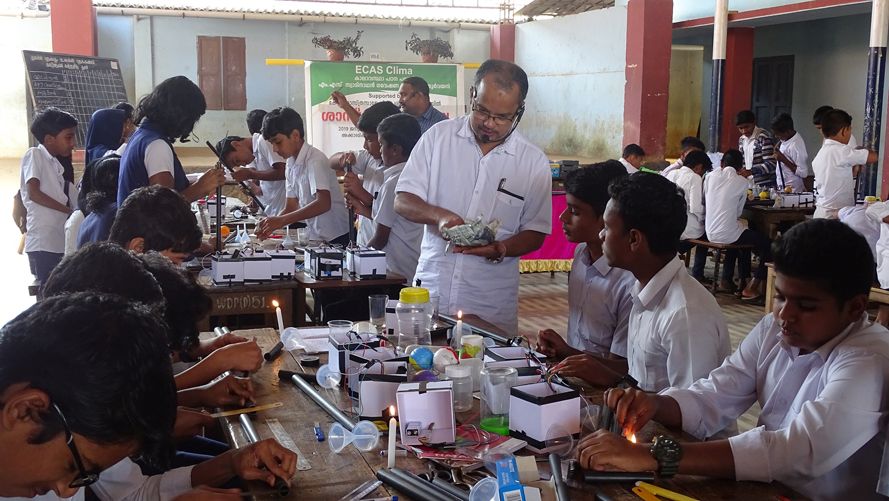Globally and nationally, environmental crises have increased at alarming rates due to demographic explosion and unsustainable and unmindful consumption patterns. As a result, the supporting capacity of the ecosystem has been diminishing like never before. The human eco-destructive propensities have deep cultural and psychological roots. Our attitudes, values, ethics, perceptions and behaviour should always be pro-nature in order to sustain the biodiversity of planet earth. The societal actions and value system could be channelled towards protecting the ecology and environment through appropriate Education, Communication and Training methods.
Community Agrobiodiversity Centre: Transcending the Boundaries of Formal Education…!
Over the last 25 years, CAbC has been indulged in the dissemination of knowledge to masses and has aggregated diverse knowledge and experience in the area of sustainable biodiversity management and rural livelihoods from the local community. The organization works hand in hand with a large number of knowledgeable individuals including farmers, whose expertise ranges from biodiversity conservation, sustainable agriculture to adaptation strategies to the changing socio-economic- and environmental issues. We believe that indigenous knowledge has always an upper hand over ‘bookish’ knowledge and we bank heavily upon this comparative advantage of disposal knowledge for educating all those key stakeholders (both individuals and institutions) in the area of sustainable agricultural and rural development.
Participatory Research for ‘Symbiotic’ Benefit
CAbC has become one of the most sought after ‘knowledge centres’ for post-graduate students in the areas of agriculture, ethno-botany, taxonomy, genetic resources conservation, evaluation and utilization. CAbC encourages post-graduate students to conduct participatory research along with local community so that students can learn extensively from highly resourceful local community. There are symbiotic benefits for both students and local community as when knowledge sharing takes place, it broadens their knowledge spectrum to a large extent.
A Community Training Centre has been established at CAbC exclusively for the local community and farmers’ trainings.




